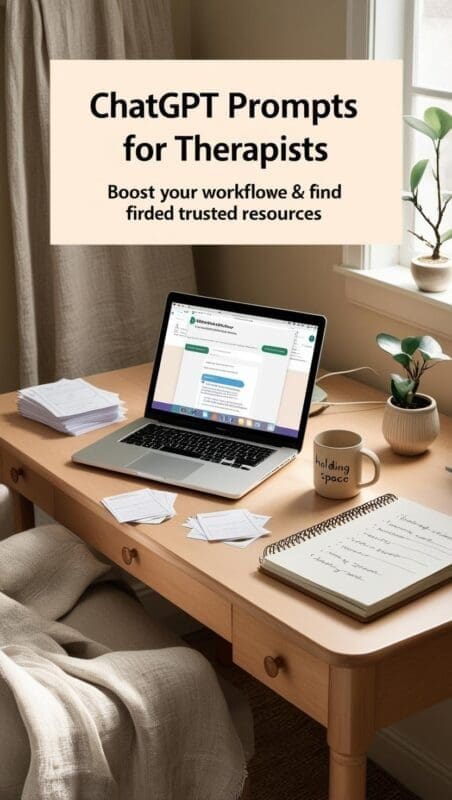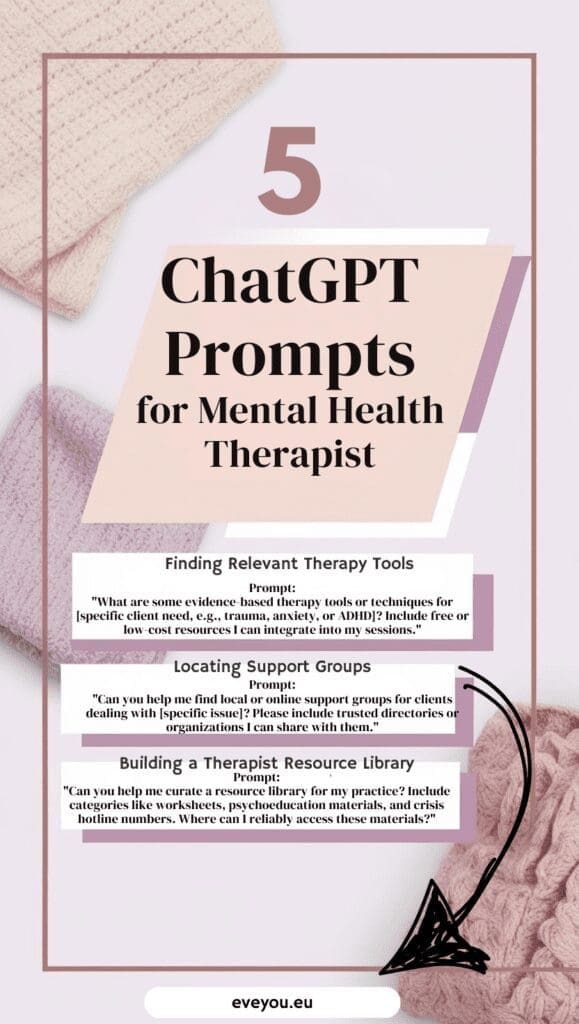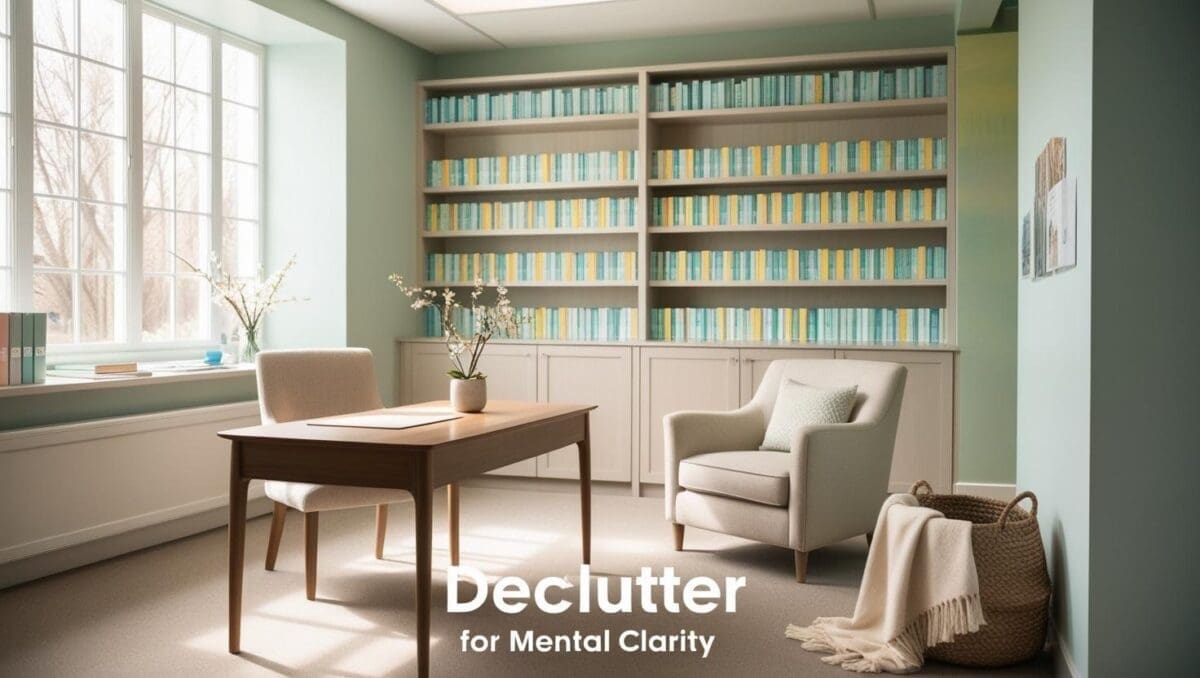AI is everywhere right now, and like many therapists, I was hesitant at first. Could a tool like ChatGPT really help in a counseling context without crossing ethical boundaries? The short answer: yes, but with clear limitations.
ChatGPT isn’t a therapist. It doesn’t replace your training, your ethics, or your clinical judgment. What it can do is help with the behind-the-scenes work that often eats up your time — like brainstorming psychoeducational resources, preparing classroom activities, or finding new ways to explain complex concepts to clients.
Think of it like a brainstorming partner: quick to toss out ideas, but always in need of your filter and expertise. In this article, I’ll share how I’ve been using ChatGPT to make my resource prep easier — along with practical prompts you can adapt in your own practice.
Why Use ChatGPT as a Resource Tool?
If you’ve ever sat in front of your computer for an hour trying to come up with a creative worksheet idea, you’ll understand the appeal. ChatGPT can help you:
- Generate starting points for psychoeducational handouts.
- Break down complicated theories into client-friendly language.
- Brainstorm activities for groups, classrooms, or therapy sessions.
- Save time on repetitive research, so you can focus on your clients.
The key is using AI ethically: never copying and pasting raw content into therapy materials, always double-checking accuracy, and keeping client safety first. ChatGPT is not a counselor. It doesn’t know your students, your school, or your community. It’s only useful when you filter and adapt its output with your professional judgment.
Crafting Effective Prompts: Best Practices
Finding Psychoeducational Resources
One of the biggest time-savers I’ve found is using ChatGPT to brainstorm psychoeducational content.
Let’s say I’m creating a workshop for teens about coping with anxiety. I might ask:
“Generate five age-appropriate coping strategies for high school students dealing with test anxiety.”
The output isn’t perfect, but it gives me a solid draft I can refine. Often, it sparks ideas I hadn’t considered — like turning one coping skill into a group role-play activity.
Some ways this has helped me:
- Quick idea generation: I can ask for simple analogies to explain abstract ideas like “cognitive distortions” in a way that clicks with teens.
- Simplification: I sometimes request a plain-language summary of therapeutic models, such as CBT or DBT, to guide how I present these ideas to clients.
- Activity inspiration: Even if ChatGPT doesn’t create ready-to-use activities, it often suggests new directions I can expand into custom exercises.
I don’t use these ideas as-is — but they cut my prep time in half.
Creating Handouts and Worksheets
Designing worksheets can feel overwhelming when you’re juggling multiple clients. ChatGPT can act like a first-draft assistant.
For example, if I want a “Feelings Wheel for Kids”, I might ask:
“Suggest emotions to include in a simplified feelings wheel for children ages 7–10.”
ChatGPT will list a range of emotions, which I can then refine into a visually appealing handout using Canva or another design tool.
Here’s how I use it responsibly:
- Get the raw content (lists of emotions, coping skills, journaling prompts).
- Check for accuracy and appropriateness for my target age group.
- Adapt it with my own expertise into a polished, client-ready tool.
The result feels professional and supportive — and it’s tailored to my practice, not just something pulled off the internet.
Lesson Plans and Group Activities
When working with classrooms or therapy groups, it can be hard to keep activities engaging. ChatGPT helps me brainstorm new approaches quickly.
Example prompt:
“Generate three short mindfulness activities suitable for a classroom of 20 middle school students.”
I never use these scripts directly, but they give me fresh frameworks to build on. Maybe ChatGPT suggests a “5-senses grounding exercise.” I’ll then adapt it into a more interactive group activity with student input, making it my own.
This is especially helpful when:
- You’re planning recurring sessions and need variety.
- You want creative spins on old techniques.
- You need age-appropriate adaptations for different groups.
Simplifying Complex Topics for Clients
Another place ChatGPT shines is in translation — turning jargon-heavy psychological concepts into simple, digestible explanations.
For instance, I’ve asked:
“Explain the concept of ‘fight, flight, freeze’ in a way a 10-year-old would understand.”
The response gives me a starting metaphor (like comparing it to animals’ survival instincts), which I can then adapt to my client’s specific needs and developmental level.
This doesn’t replace my expertise — but it helps me think creatively about how to meet clients where they are.
Ethics and Boundaries
Because AI in therapy is a sensitive topic, I want to be clear:
- ChatGPT is not a therapist — it can’t build relationships or provide care.
- All outputs need your filter — check accuracy, adapt for your clients, and avoid over-reliance.
- Confidentiality matters — never input identifiable client information.
I use ChatGPT like I would use a textbook, Pinterest board, or brainstorming session with a colleague. It’s a resource, not a replacement.
Exploring ChatGPT has saved me time, sparked creativity, and made resource prep less overwhelming. But it hasn’t changed the core of my work: showing up for clients with empathy, presence, and professional judgment.
If you decide to use these prompts, try them as a launching pad — not a final product. With your expertise layered on top, AI can be a surprisingly practical partner in creating meaningful, ethical resources for your practice.
Example Prompts You Can Try
Here are a few sample prompts to get you started (adapt them to your needs):
- “Generate five metaphors to explain anxiety to a teenager.”
- “Suggest coping strategies for children with perfectionism in school settings.”
- “Summarize the core ideas of DBT in simple language for a client handout.”
- “Brainstorm interactive group activities for a classroom session on emotion regulation.”
Thoughtful Use of AI in a Human-Centered Field
ChatGPT isn’t here to replace the intuition, empathy, or training that defines good therapy—but it can be a supportive tool in the background. Used wisely, these prompts can help mental health professionals access ideas, brainstorm resources, and bring fresh structure to their therapeutic practice.
Explore more ways to support your work as a therapist:
- How Therapists Can Use AI for Psychoeducation & Mental Health Awareness
- Creative & Cute Therapist Gift Ideas for Any Occasion
- Professional Therapist Outfit Ideas – Style Guide
If you found these prompts helpful, save this article or share it with a colleague. And if you’ve created something meaningful using ChatGPT in your work—I’d love to hear about it!


About the Author
Hi, I’m Eve, a former school counselor with a master’s degree in School Psychology and a passionate advocate for children and families navigating sensory challenges. As a mom of children with sensory sensitivities, I deeply understand the journey special-needs parents face, and I dedicate myself to researching and sharing practical solutions to help children thrive and feel comfortable in their bodies. My goal is also to empower counselors, therapists, and psychologists with creative strategies and supportive resources to enrich their everyday practice. When I’m not writing or exploring new therapeutic approaches, you’ll find me spending quality time with my family and continually seeking inspiration from everyday moments.



